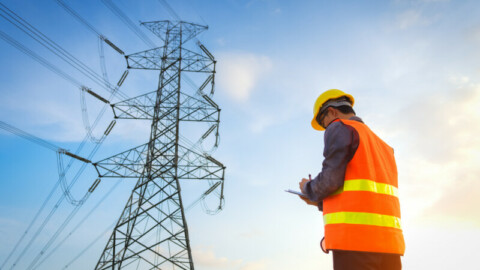Electricity retailer Enova Community Energy – created from grass-roots community action in the Northern Rivers of NSW and focused on leadership in local community self-sufficiency – last year expanded its availability throughout NSW, and is now on target to launch in South East Queensland in early 2020.
Enova Community Energy was founded in 2016 as a direct outcome of the community’s drive towards alternative energy models. Enova is truly community-owned, with more than 1600 individual Australian shareholders having invested to grow the organisation.
The company already has more than 7500 customers throughout NSW. As a social enterprise, 50 per cent of Enova’s profits are directed into initiatives to facilitate this vision through its registered not-for-profit charity arm.
Enova CEO Felicity Stening said, “Enova’s aim is to establish an energy supply model that can be recreated by communities across the country, and in the longer term, produce enough renewable energy locally to meet all its customers’ energy needs.
“Enova works in collaborative partnerships with organisations and communities to facilitate and implement initiatives that create new energy models, where energy is locally generated, community-owned renewable energy. The aim is to pave the way for towns and suburbs to generate, store and share their own renewable energy, and move away from coal fired power,” said Ms Stening.
“We are purposefully and actively disrupting the energy model. That model from the 20th Century is outdated and inefficient, as power is lost along the way.”
Already about 60 per cent of Enova’s customers have rooftop solar panels, which is three times the state and national average of solar take-up. Enova is harnessing this renewable resource by buying back exported solar energy and recirculating it. Up to half of Enova’s energy supply comes from its own customers’ solar rooftops.
Enova led the market with the highest feed in tariff in NSW for more than two years, to encourage rooftop solar uptake. Enova presently sources the remainder of its energy demand from the grid and offsets the carbon emissions related to all power purchases.
In simple terms, the solar energy fed back into the grid by customers is offset against Enova’s total energy purchase needs for its customers.
Enova Community Energy is focused on increasing the amount of locally generated renewable energy, building energy security in local areas, and ensuring money spent on energy bills circulates in local communities.
The company’s plans include growing the customer base to deliver significant profits back to its not-for-profit arm for community renewable energy projects. Enova retails electricity to NSW and will soon expand to Queensland and other states.
This will enable both large and small-scale community-owned renewable energy generation and storage projects. In addition, new energy models facilitating the generation, distribution, storage and sharing of energy through local energy trading, microgrids, virtual power plants, and solar gardens will deliver sustainable and resilient communities.
“Solar gardens and microgrids are key innovations for introducing community-owned locally generated energy to suburbs and towns around the state and reducing reliance on fossil fuels. By leveraging technology and partnerships, we’re already delivering outcomes in the Northern Rivers area of NSW and we have recently launched Australia’s first social benefit solar garden in Lismore, NSW,” said Ms Stening.
Enova is already building a body of knowledge for making local energy systems, solar gardens and microgrids happen. In the case of the solar garden, Enova us pioneering the systems and processes that will distribute its benefits to solar gardeners who are North Coast Community Housing tenants and local community organisations.
A solar garden is a centrally-located solar PV array on a small business rooftop where solar gardeners receive a credit on their electricity bill for the solar generation of the panels – similar to if the panels were on their own roof.
“We are trying to ensure renewable energy is accessible by all,” said Ms Stening.
The financial benefits generated by a 35kW solar array situated on the rooftop of North Coast Community Housing in Lismore, NSW, are being distributed in the form of energy bill credits to 19 social housing tenants, four community organisations and North Coast Community Housing.
This is a great example of creating local renewable energy generation, which can be distributed to benefit local people in need.
Enova is also piloting its first microgrid in the Byron Bay Arts and Industrial Estate with more than 20 local businesses involved. This microgrid will enable local generation, storage and distribution of renewable energy in the industrial estate, and shows how business can collaborate to create local solutions to self-reliance.
“Our vision is to enable energy self-sufficiency for everyone and to build resilient communities. To achieve this, we need to connect businesses in industrial precincts and houses in streets, so they can share locally generated renewable energy amongst themselves; and we need to ensure that the renewable energy transition is accessible by all,” she said.

















